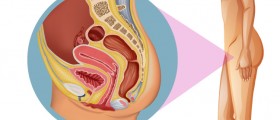
Hormone replacement therapy aims to relieve the symptoms of menopause using medications that contain estrogen and progesterone. These hormones are female hormones normally produced by the ovaries. But, before and during menopause estrogen and progesterone levels can fluctuate causing symptoms such as hot flashes and vaginal dryness. Hormone replacement therapy, now simply called hormone therapy was also used to protect against osteoporosis and heart disease. However, since 2002 when a large study was conducted, hormone therapy is known to have more health risks than benefits. Due to that, the hormone therapy is not prescribed as often as it used to be.
Benefits of Hormone Therapy
Hormone therapy given in menopause helps to restore hormone levels in women using estrogen and progestin, synthetically made progesterone. The therapy helps to relieve different physical and emotional symptoms of menopause. Long-term hormone therapy is not recommended since it has more risks than benefits. But if hormone therapy is used on short-term basis, the benefits outweigh the risks. Estrogen therapy taken for short-term may prevent several conditions:Osteoporosis – hormone therapy prevents thinning of the bone, which can lead to brittle bones, or osteoporosis. Colorectal cancer – the therapy minimizes the risk of colorectal cancer.Heart disease – it is believed that estrogen given early in post menopause may decrease the risk of heart disease.However, estrogen taken without progestin can increase the risk of uterine cancer thus these hormones are commonly prescribed in combination. Estrogen alone can be taken only by women who have had hysterectomy.
Risks of Hormone TherapyA large clinical study has revealed that the combination estrogen-progesterone can increase the risk of several serious medical conditions. Over a year, 10,000 women who take estrogen and progesterone may experience: seven more cases of heart disease comparing to those who take placebo, eight more cases of breast cancer than those who take placebo, eight more cases of stroke than those who take placebo and eighteen more cases blood clots comparing to those who take placebo. According to the study, estrogen alone can result in twelve more cases of stroke comparing to woman who take placebo and six more cases of blood clots in the legs than women who take placebo.
Who Should Take Hormone Therapy?
Although the hormone therapy entails several health risks it is still recommended to be taken on short-term basis in several cases. The therapy is recommended to women who have moderate to severe hot flashes and other menopausal symptoms. Women who have lost bone mass and can not tolerate or benefit from other therapies can be treated with hormone therapy. This applies also to women who experience premature menopause or premature ovarian failure.
Who Shouldn’t Take Hormone Therapy?
Hormone therapy is not recommended to women who have breast cancer or endometrial cancer. Women with abnormal vaginal bleeding, blood clots, liver disease and history of stroke also should not take hormone therapy.

















Your thoughts on this
Loading...